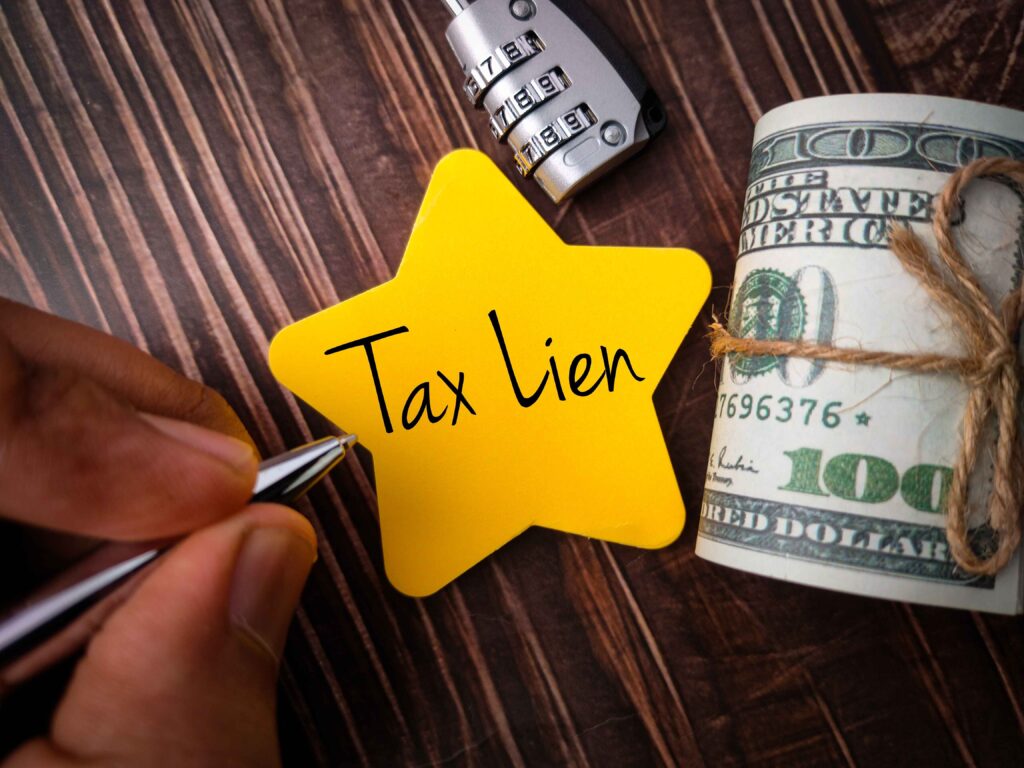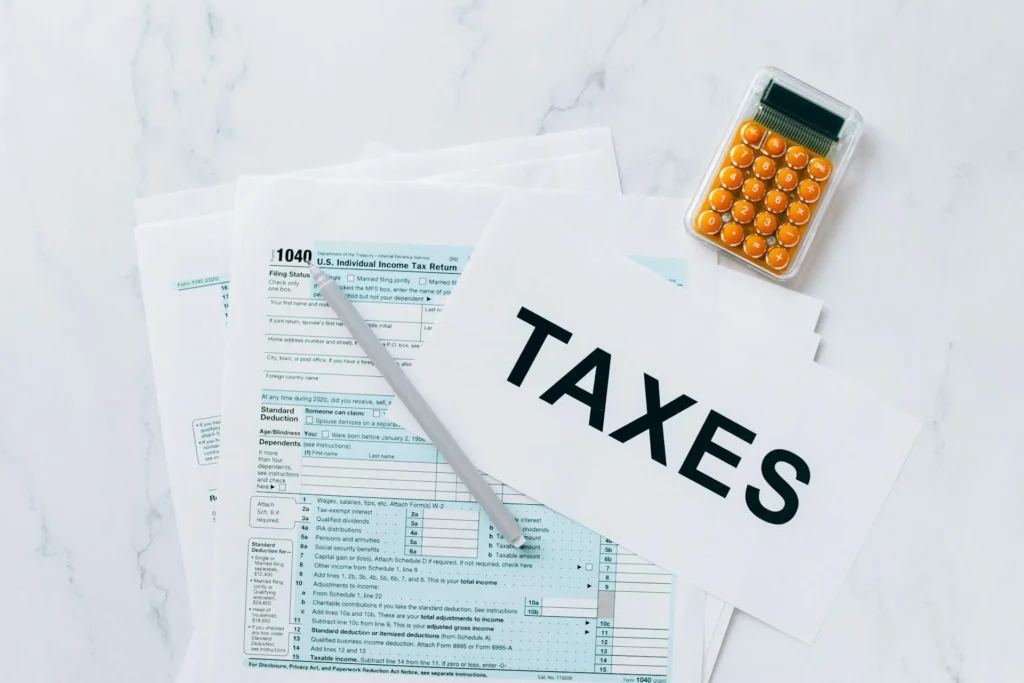Our Tax Lien Attorney Can Assist with IRS FederalTax Liens
Facing IRS liens or levies?
 When you are informed that a federal tax lien exists in your name and that creditors have been notified about the government’s legal claim to your assets, it can feel pretty overwhelming. However, while a federal tax lien is a serious issue, you have rights as a taxpayer that can help you protect financial assets or even reduce your tax liability.
When you are informed that a federal tax lien exists in your name and that creditors have been notified about the government’s legal claim to your assets, it can feel pretty overwhelming. However, while a federal tax lien is a serious issue, you have rights as a taxpayer that can help you protect financial assets or even reduce your tax liability.
What Is a Federal Tax Lien?
A federal tax lien is typically imposed when the IRS files a claim on your personal property, business property, and other assets. A lien is the result of unpaid tax debt, which is why it is important to fully pay all of your taxes each year. If you fail to pay your debt, your assets may be seized by the government.
The most common type of federal tax lien is a general lien. This lien filing is part of Internal Revenue Code 6321, which states that the government can claim all your property and other assets to pay off your tax debt. Additional penalties can be imposed until all of your IRS debt is paid in full.
Will You Get a Notice of Federal Tax Lien?
You will generally get a Notice of Federal Tax Lien in the mail to inform you that the government has a legal right to your property. This notice is also a public document that will alert creditors about the government’s interest in your assets. Alerting other creditors is important since your federal tax debt will have first priority for debt payment.
Will You Have Multiple Notices?
According to the Internal Revenue Code, the IRS does not have to send you multiple notices if you have an unpaid debt. The IRS simply has to make a tax assessment about your debt and issue the Notice of Federal Tax Lien. This is why a general tax lien is sometimes called a “silent” lien.
Preventing IRS liens
 Generally, a tax lien cannot be canceled without payment of the tax at the IRS. However, this does not always apply to everyone. If you can’t pay it all together as a single payment, there is a payment plan and other options for the IRS.
Generally, a tax lien cannot be canceled without payment of the tax at the IRS. However, this does not always apply to everyone. If you can’t pay it all together as a single payment, there is a payment plan and other options for the IRS.
How can I get rid of my federal tax liability?
In response to growing tax liabilities, the IRS is filing liens on taxpayers. A federal tax lien is documents filed in public records with the county government usually where the taxpayer lives. It warns people about unpaid taxes from the taxpayers. A lien on the property of taxpayers may include personal and real property.
How do federal tax liens impact your credit score?
Liens are collected from three credit reporting agencies. In 2018, all three agencies stopped collecting tax lien info. Tax liens should not appear on your credit report. Despite this tax lien, the IRS does not keep the tax lien publicly disclosed. It means lenders, credit cards, landlords and possible employment partners can know about the lien.
When federal tax liens arise
 The federal tax lien—sometimes called a “statutory lien” or “a silent lien”—can often be confused with an IRS notice of its existence. Notice of Federal Tax Liens is an official document that is mailed to the state to inform the other creditors of the lien interest. Whereas a statutory lien is a claim on your property that arises by operation of law. The lien exists even if you never receive any notice from the IRS.
The federal tax lien—sometimes called a “statutory lien” or “a silent lien”—can often be confused with an IRS notice of its existence. Notice of Federal Tax Liens is an official document that is mailed to the state to inform the other creditors of the lien interest. Whereas a statutory lien is a claim on your property that arises by operation of law. The lien exists even if you never receive any notice from the IRS.
Notifying taxpayers that a lien has been filed
The IRS will remind you of the liability before imposing a lien. The first part begins with the IRS sending a notification about tax liabilities and demand for payment. The notice of tax lien is then subsequently sent and recorded. This can cause financial stress and can cause financial problems in the future.
How do I know if the IRS has a lien?
You may learn more by calling the IRS Centralized Lien Unit at 1-844-913-6050 or calling an IRS tax professional.
How can a tax lien attorney help get an IRS lien removed?
The Fresh Start program allows for revocation by an individual taxpayer based upon direct debit installment agreements. The taxpayer must file all required returns in the past 6 years and maintain the latest estimated tax payments for each income tax year. This can help you reduce the lien by paying off your tax liability over time.
What are the consequences of IRS liens?
 A federal tax lien gives the IRS a legal claim to your property as collateral for unpaid taxes. Tax liens can make it difficult to get loans, buy a car or house, lease property, or obtain credit. A lien can stay on your property until the debt is paid in full or until the 10-year statute of limitations expires.
A federal tax lien gives the IRS a legal claim to your property as collateral for unpaid taxes. Tax liens can make it difficult to get loans, buy a car or house, lease property, or obtain credit. A lien can stay on your property until the debt is paid in full or until the 10-year statute of limitations expires.
How Can You Get Rid of an IRS Lien?
The best way to get rid of an IRS lien and protect your personal property is to pay off your back taxes as soon as possible. A payment plan such as a direct debit installment agreement will allow you to make monthly payments to reduce your debt. Once your taxes are paid in full, the lien will be released after 30 days.
In addition to a payment plan, you can also file for a discharge to remove an IRS lien from certain property. You can also apply for withdrawal, which will remove the public notice of your lien, but you will still need to pay off your remaining debt.
An IRS lien protects the government’s claim on your property and assets when you are in tax debt. Usually, a lien is only triggered when other methods of debt collection have failed. You may need to work with an experienced tax advisor or tax attorney to reduce the impact a lien has on your finances.
Get in touch with Damiens Law Firm, PLLC at 601-957-9672 today.




